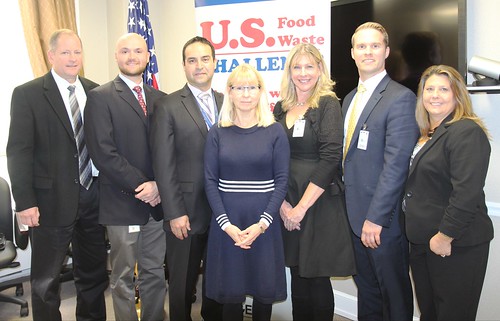
Did you know that nearly one-third of the food available to U.S. retailers and consumers never makes it to the dining room table? That’s 133 billion pounds of food going to waste--all of which has far-reaching impacts on food security, resource conservation, and climate change. Experts have projected that reducing food waste by just 15 percent would provide the equivalent of enough food for more than 25 million Americans every year.
That’s why my agency, USDA’s Agricultural Marketing Service (AMS), decided to help tackle the problem by sponsoring the Terminal Market Food Waste Challenge. Produce markets across the U.S. joined the friendly 90-day competition by making sure that usable fruits and vegetables were not thrown away. While these fresh foods weren’t picture-perfect supermarket quality or simply didn’t sell, they were healthy, wholesome foods that could be made into juices, added to animal feeds, used for compost, or donated to charity.
The Terminal Food Waste Challenge prompted a total of 83 produce companies from seven different terminal markets to divert more than 1.6 million pounds of fruit and vegetables into alternative uses. The competition, just one part of the larger U.S. Food Waste Challenge, began March 29, 2016, at the Maryland Food Center Authority in Jessup, Md., and concluded June 30, 2016.
The top competitor, the Philadelphia Wholesale Produce Market (PWPM), enlisted its 22 produce companies to divert 1.2 million pounds of food into better uses during the Challenge. PWPM was recognized in a ceremony at USDA headquarters, receiving a certificate signed by Agriculture Secretary Tom Vilsack and taking the opportunity to showcase their successful efforts.
USDA and the Environmental Protection Agency (EPA) launched the U.S. Food Waste Challenge initiative on June 4, 2013, calling on stakeholders across the food supply chain – including producer groups, processor, manufacturers, retailers, communities, and other government agencies – to join the effort to reduce, recover, and recycle food that would otherwise be wasted.
By participating in this challenge, and finding other ways to reduce waste, produce markets and other USDA partners throughout the U.S. are helping more wholesome, healthy foods make it to our tables.



